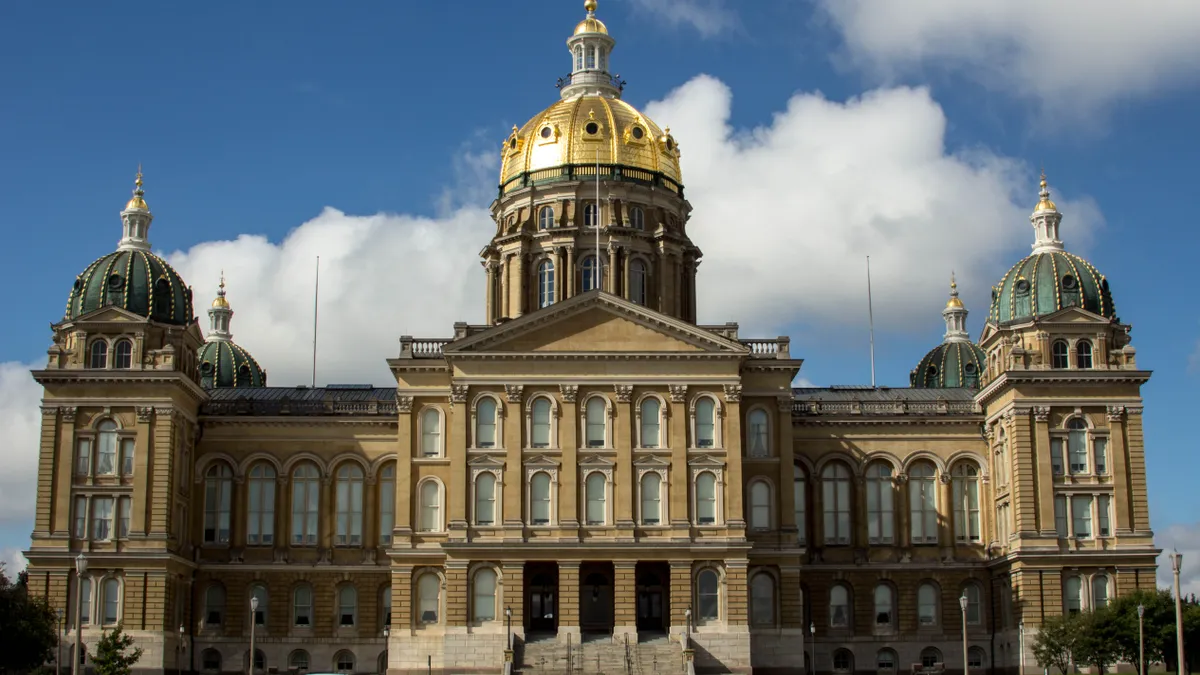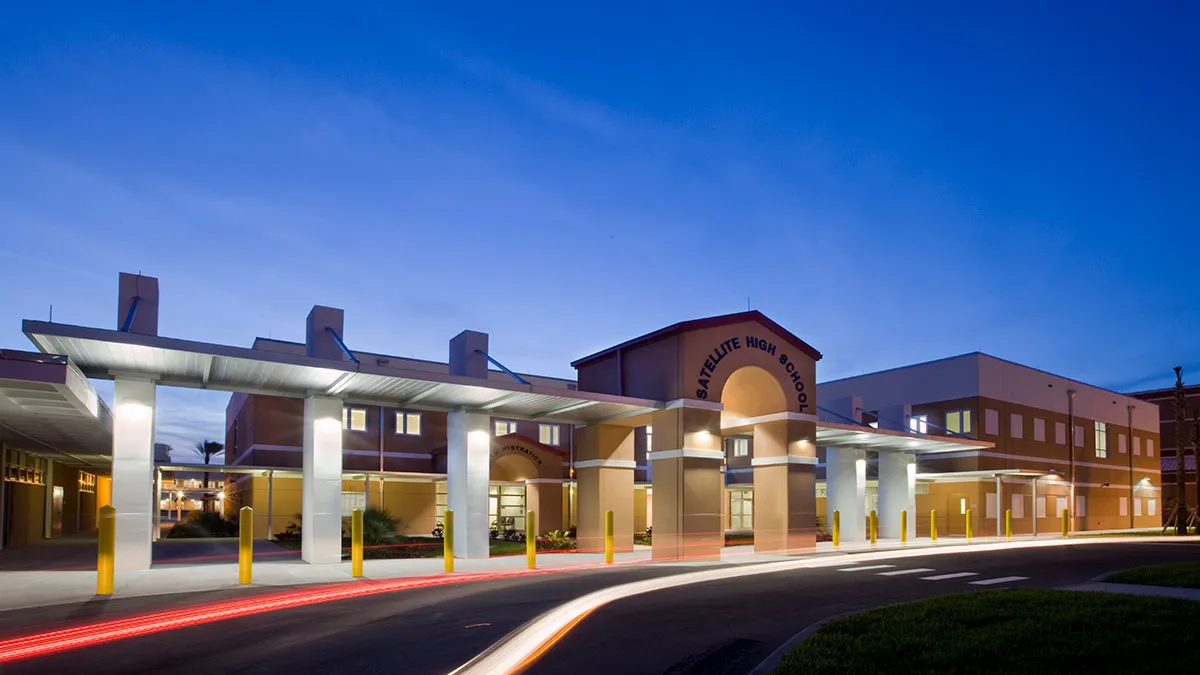Proposals from legislators and advocacy groups seeking to monitor teachers are growing.
In Iowa, state Rep. Norlin Mommsen, a Republican, recently introduced legislation that would require school districts to place cameras in every classroom and livestream lessons to parents or guardians during school hours. The bill specifies cameras would not be designated for special education or physical education classes.
The legislation, Mommsen said, is meant to encourage parent engagement in student learning amid the COVID-19 pandemic. Teachers who do not comply with the livestreaming could be fined up to 5% of their weekly salary for their third offense, at which point superintendents would also be fined 5% of their weekly salary.
“With virtual learning or remote learning that has taken place, parents seem to have gotten reengaged with their children's education,” Mommsen said. “And I think it's important we nurture that and expand upon that.”
However, coming against a backdrop of anti-critical race theory legislation that has been proposed or adopted in red states nationwide — such as the law signed by Iowa Gov. Kim Reynolds last June — critics see the measure as a way to monitor and target what is being taught in the classroom.
In other states, for example, teachers have been targeted by parents through reporting mechanisms like tip lines for teaching “divisive concepts.” Many times such concepts are related to race, gender, religion or sexual identity.
Virginia Gov. Glenn Youngkin has been among the most recent to open such a tip line, which has faced backlash from the public and was flooded with fake tips from opponents.
“But now some politicians around the country want to limit not only what history our kids can learn about and what books they can read, censor the truth of our history in some cases, and, now in Iowa, they want to install classroom cameras for live monitoring of teachers,” said Becky Pringle, president of the National Education Association, in an email. “This is an ill-conceived idea that would set a terrible precedent.”
Mommsen, who voted for the anti-CRT law passed in his state, says his legislation’s intent was unrelated to the recent wave of such laws and has been met with varied reactions across the board, including from grateful parents and grandparents who said they could use it as a refresher tool while helping with their children’s homework.
“So I'm going with a much more positive approach to education,” Mommsen said.
However, Mike Beranek, president of the Iowa State Education Association, views the bill as part of a larger attack on public education and a red herring drawing attention away from what he sees as other, more important issues like school funding, retention and recruitment of educators, and overcrowded classrooms, among other things.
“And so bills like this are attacking our public school system, when we need to be working together to find solutions to lift up and raise our education system,” Beranek said.
Under Mommsen’s proposed legislation, funding for the recording equipment and related expenses would come from the state education funds allocated to districts, at a time when critics of the legislation say funding for school priorities is needed most.
“We need more resources, not less, to meet the needs of our students,” Pringle said. “Instead of wasting public funds on monitoring equipment, we should employ additional qualified professionals, reduce class sizes, and provide more programming that helps students acquire the skills they need.”
However, Mommsen said the effort would be low cost, utilizing existing technology like Zoom that was used during remote learning.
“We're in a crisis here in Iowa, with classrooms being unfilled because we don't have the appropriate individuals to fill those programs for those classrooms,” Beranek said. He said initiatives like Mommsen’s would further deter current and prospective teachers from the profession.
“More to the point, the bill would put undue additional stress on educators and make Iowa less desirable to work for them,” agreed Pringle. “We should trust educators, not politicians, to ensure our kids receive the best education possible.”
A recent poll from MissionSquare Research Institute, for example, found K-12 teachers were more likely than other government employees to say they were considering changing jobs. Some 26% of public sector employees said they were considering retiring or leaving the workforce entirely due to working with the public or students’ parents.
Mommsen, however, said he has been contacted by some teachers who cited the need for protection from students’ physical and verbal abuse and expressed relief at the possibility of cameras in every classroom.
In other places, cameras with live feeds, which can be triggered by teachers pressing a silent alarm and only viewed by designated education personnel, have been introduced for security purposes.
And although the Iowa legislator insists his proposal for cameras is unrelated to larger trends of surveilling teachers and curriculum, Republican state Sen. Jake Chapman, another Iowa state legislator, is pushing efforts to prohibit “obscene” and “hard-core pornography” materials in schools, which are often related to LGBTQ or people of color, local reporting said.
In Nevada, the Nevada Family Alliance, which describes itself as a parental rights and religious freedom watchdog organization, proposed last year that teachers wear body cameras.
“Teachers are increasingly imposing their own political views and are undermining parental views and values,” said Karen England, executive director and founder of Nevada Family Alliance, in a statement. “Creating a record that could be viewed by appropriate parties, if necessary, might be the best way to urge teachers to stick to traditional teaching.”























